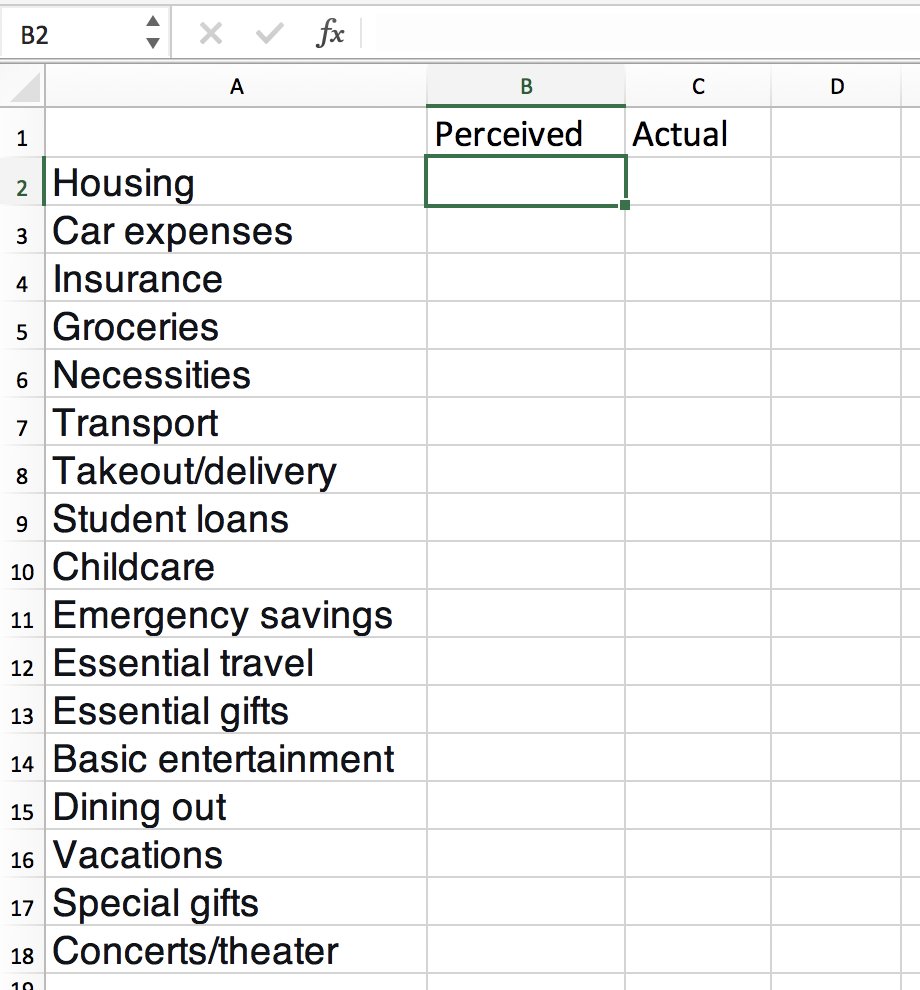
Now is a great time to develop a serious budgeting habit.
2021 might bring changes to your annual income. If your yearly salary is north of $400,000 you could see higher taxes trib.al/upYCliU
2021 might bring changes to your annual income. If your yearly salary is north of $400,000 you could see higher taxes trib.al/upYCliU
Biden will want to spend a lot to save the economy and lives from Covid-19.
Those hardest hit by the K-shaped recession might get another stimulus check and more unemployment benefits. Look at your finances now so that you’re prepared trib.al/upYCliU
Those hardest hit by the K-shaped recession might get another stimulus check and more unemployment benefits. Look at your finances now so that you’re prepared trib.al/upYCliU

A nation should run deficits; households should avoid them.
People without budgets are more likely to fall into debt — and anxiety. But search for “how to create a budget” and most results are inadequate trib.al/upYCliU
People without budgets are more likely to fall into debt — and anxiety. But search for “how to create a budget” and most results are inadequate trib.al/upYCliU

Almost everyone underestimates the rewards of creating a budget.
Budgeting takes effort and psychological steel. It won’t give you immediate gratification, nor will it get you more money. But a budget will give you power. That’s the main payoff trib.al/upYCliU
Budgeting takes effort and psychological steel. It won’t give you immediate gratification, nor will it get you more money. But a budget will give you power. That’s the main payoff trib.al/upYCliU

Step 1: Take out a piece of paper and pour out a fresh cup of coffee. 🗒☕️
You may be starting with debt hanging over your head. Put that debt, along with savings and wealth, to the side. Your budget is about cash flow trib.al/upYCliU
You may be starting with debt hanging over your head. Put that debt, along with savings and wealth, to the side. Your budget is about cash flow trib.al/upYCliU

Step 2: Start with the difficult stuff.
Calculate what you want to spend and compare it to what you actually spend. The effect is almost magical trib.al/upYCliU
Calculate what you want to spend and compare it to what you actually spend. The effect is almost magical trib.al/upYCliU

If you are overreaching, you’ll need to change:
🌳Suggest cheaper activities to friends
🎁Enlist family to exchange cheaper gifts
The point of budgeting is getting a fact-based life trib.al/upYCliU
🌳Suggest cheaper activities to friends
🎁Enlist family to exchange cheaper gifts
The point of budgeting is getting a fact-based life trib.al/upYCliU

Step 3: On paper or a spreadsheet, itemize your spending into 17 categories and create two columns:
1. What you think you spend each month
2. What you actually spend
(For annual expenses, ➗ by 12.) This should take 25 mins after you gather your records trib.al/upYCliU
1. What you think you spend each month
2. What you actually spend
(For annual expenses, ➗ by 12.) This should take 25 mins after you gather your records trib.al/upYCliU

Here are the 17 categories:
Housing
Car expenses
Insurance
Groceries
Necessities
Transport
Takeout/delivery
Student loans
Childcare
Emergency savings
Essential travel
Essential gifts
Basic entertainment
Dining out
Vacations
Special gifts
Concerts/theater trib.al/upYCliU
Housing
Car expenses
Insurance
Groceries
Necessities
Transport
Takeout/delivery
Student loans
Childcare
Emergency savings
Essential travel
Essential gifts
Basic entertainment
Dining out
Vacations
Special gifts
Concerts/theater trib.al/upYCliU

Step 4: Note how much you think you spend on each category.
Then figure out how much you actually spend by gathering up your bank and credit card statements, looking for those sneaky auto-payments trib.al/upYCliU
Then figure out how much you actually spend by gathering up your bank and credit card statements, looking for those sneaky auto-payments trib.al/upYCliU

Step 5: Now look at the gap between the two categories.
Say you think you spend $600 a month on groceries but you really spend $900. Drill down on whether the 30% extra is caused by impulse buys trib.al/upYCliU
Say you think you spend $600 a month on groceries but you really spend $900. Drill down on whether the 30% extra is caused by impulse buys trib.al/upYCliU

Step 6: Calculate net income — that’s what you get paid after employer deductions for things like health insurance, taxes, and your pension.
You are spending too much on essential expenses (items 1-10) if they take up more than 50% of your take-home pay trib.al/upYCliU
You are spending too much on essential expenses (items 1-10) if they take up more than 50% of your take-home pay trib.al/upYCliU

As for the fun stuff, items 11-17, you know you are spending too much if you are not saving 5% for emergencies or if you’re putting the fun stuff on credit cards and not paying your balance in full every month trib.al/upYCliU 

Doing this every month is tedious but it gets easier over time.
The key to success is making your budget flexible. Budgeting gives you control, something we sorely need in the roller coaster of the pandemic 🎢 trib.al/upYCliU
The key to success is making your budget flexible. Budgeting gives you control, something we sorely need in the roller coaster of the pandemic 🎢 trib.al/upYCliU

• • •
Missing some Tweet in this thread? You can try to
force a refresh














